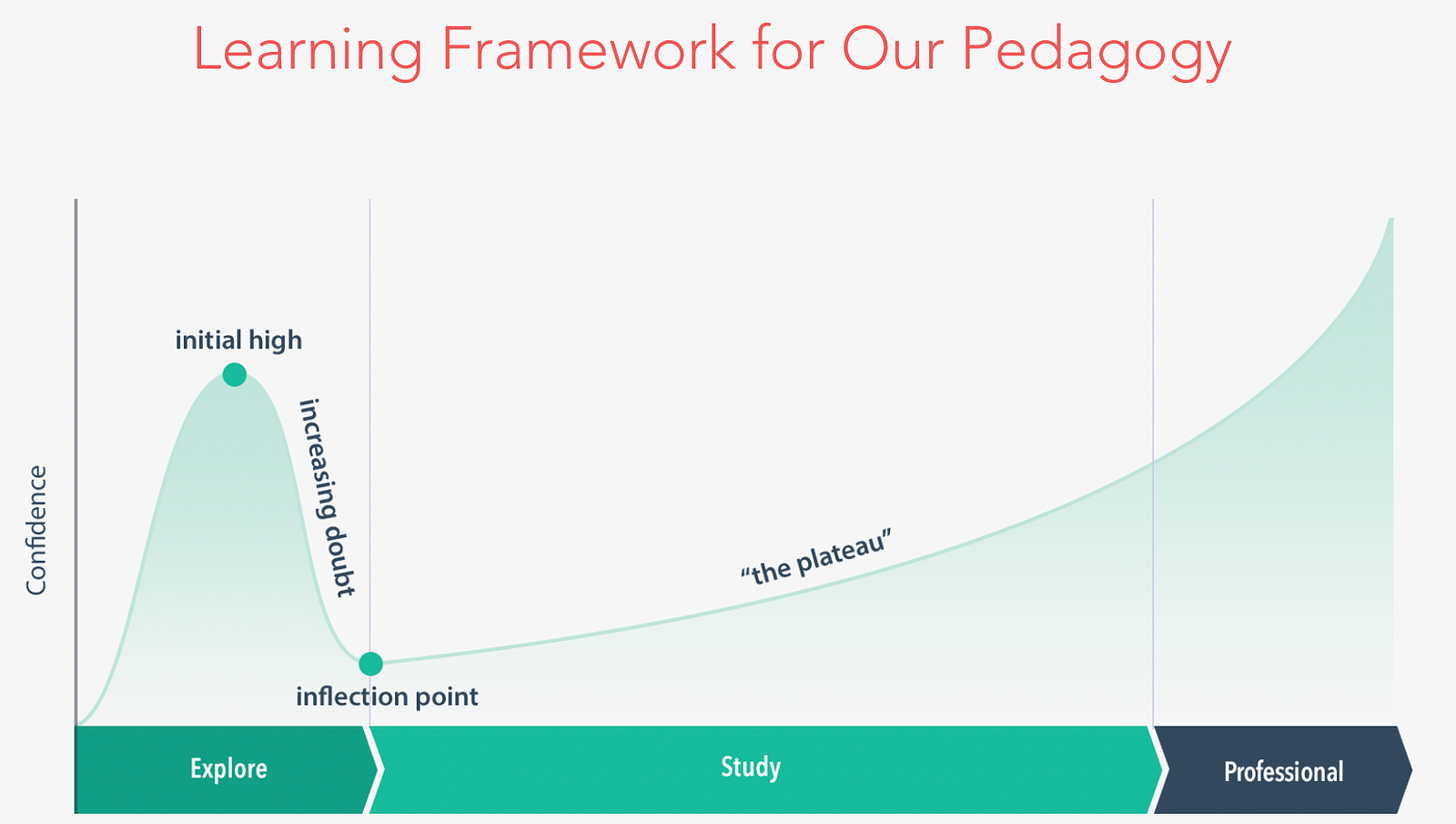I started taking a software engineering course two weeks ago — this is my 4th or 5th attempt to acquire new software engineering skills.
The Launch School has a useful graphic that breaks down the experience of learning a new skill into 3 phases:
- Exploratory phase: you experience initial high — you’re very eager to begin learning. Once you delve deeper into the learning process, the challenge humbles you and your confidence quickly drops to rock bottom (can I really do this?). This doubt brings you to an inflection point: you can quit or you can persist.
- Study phase: This phase seems to be rarely talked about. This is the phase you enter into if you choose to persist. As you struggle and work through the learning process, your confidence increases… albeit at a snails pace. This is called “the plateau”.
- Professional phase: Your persistence pays off. You trusted the process — you worked through the plateau — you’ve achieved a high level of proficiency with all-time high levels of confidence to boot.

Launch School’s Learning Framework
The 4 or 5 previous attempts I’ve made to acquire additional software engineering skills ended up with me quitting after Phase 1.
I’m not ashamed of this — if anything it provides helpful data for me to understand how I can adjust my approach to improve my chances of successfully going through phases 2 and 3.
Here’s what I’ve noticed about my prior attempts: I lean heavily into my initial excitement and I throw all my energy at it. I’ll spend hours every day diligently studying until about 2 or 3 weeks later where I eventually burnout and quit.
My new hypothesis is that developing a routine first then gradually building up intensity will give me the best chance of sustaining my commitment. So instead of intensely going through course work, I’m only spending about 5–10 minutes working through my curriculum every day.
I have no illusions about this pace getting me through the course in a timely manner — if I continued to only study for 5–10 minutes a day, I’m not sure I’d make it to the end of the course in this lifetime.
The idea is that once I’ve undergone the necessary psychological adaptations for 5–10 minutes a day to feel second-nature, I will titrate up the intensity of my commitment. Once I adapt to that new level of intensity, I’ll titrate up again, and then repeat.
Summary of current thinking: we’re creatures of habit. Establishing new habits and taking on challenging work is a lot to take on at once.
You wouldn’t begin your training for a marathon by running 26 miles.
You wouldn’t begin learning a new instrument by trying to play a complicated piece of music.
You wouldn’t pursue a Ph. D. without first completing a Bachelor's degree.
The initial high that we get from the prospect of doing new things is just that: initial. If we lean into the excitement too much, burnout ensues.
A better way to sustainably adopt new routines is to engage slowly & allot sufficient time for new routines to solidify.